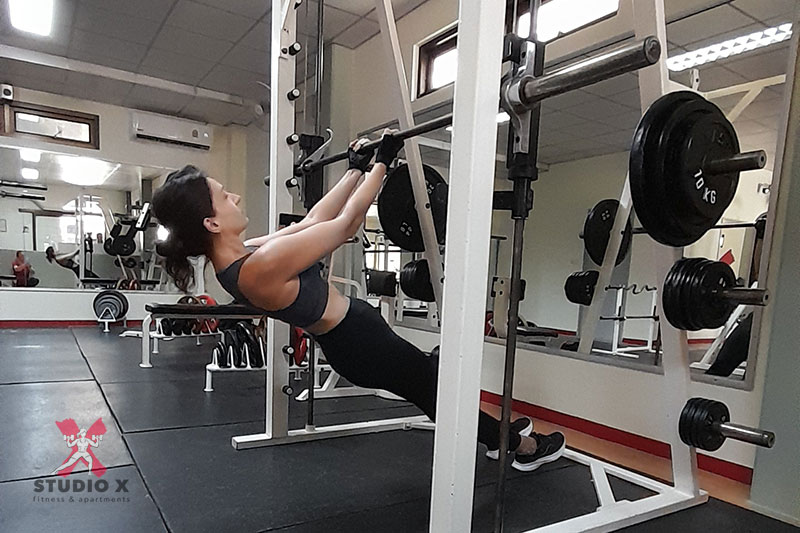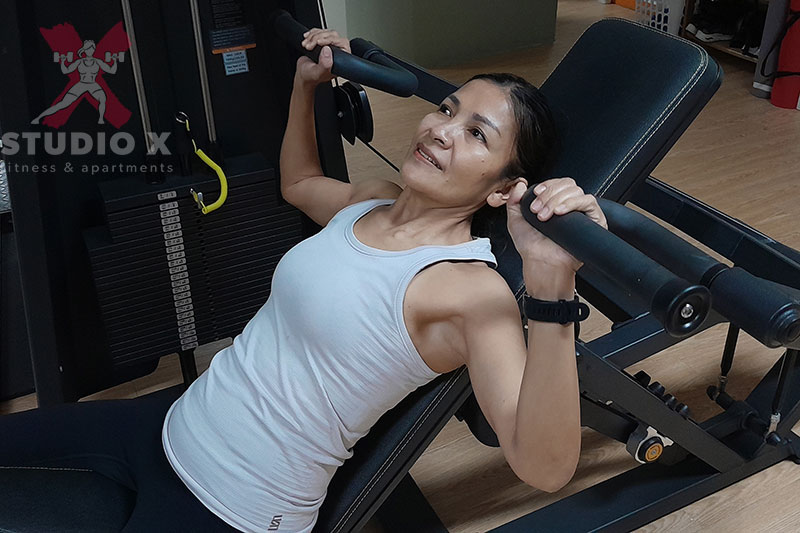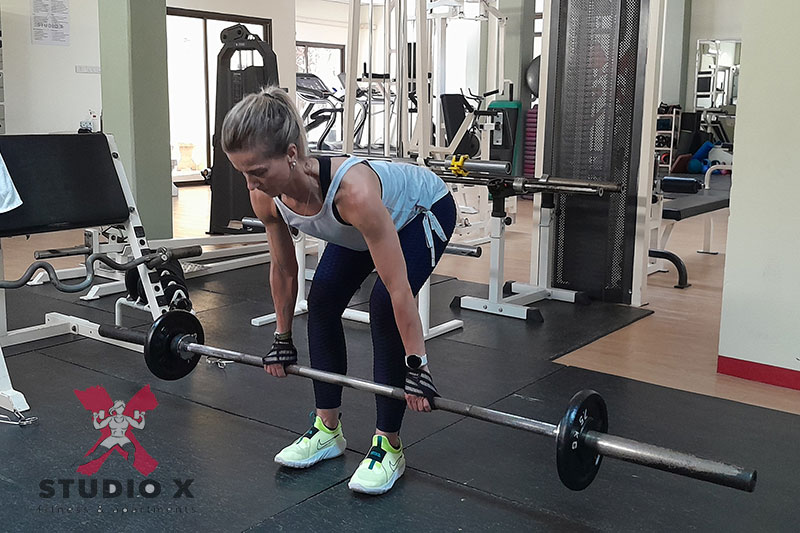Hi women! We understand that you are afraid to get bulky. We know that you are confused about strength training, misconceptions, and misguided TikTok information. Please take a minute to read this.
Lifting heavy weights will not make you bulky!
Without going deep into the science of strength training, and all the tweaks and nuances, here is an oversimplified explanation:
- When lifting only moderate weights with high reps, you deplete the glycogen from the muscle cells. The cells will learn how to grow bigger and hold more storage.
- When lifting heavy weights for fewer reps, you create deep microtears in the muscles. Your muscles grow back stronger but not bigger.
Of course, there is way more nuance to this! And a lot of overlap. Nothing is 100% this way or the other. Bodybuilders do get stronger, and people focusing on strength training will see some muscle growth. And then there is a huge nutrition factor involved as well. And hormones play a big role in the results too.
The point is:
If you insist on lifting weights like a bodybuilder but don’t follow the diet required for it, the visible results will be minimal.

You can read all about specificity, the required reps and sets, and dive into the information on different muscle fibres and hormones between men and women, and learn more about the difference between bodybuilding and strength training, and the amounts of protein required.
But if reading long format texts is not your thing… here is what you need to know:
What will you get from lifting light weights for high reps
- Increased endurance
You’ll be able to perform more reps and sustain longer workouts, but this doesn’t lead to visible results. - Slightly firmer muscles. Minimal definition
Light weights may help make your muscles feel slightly firmer, but without heavy resistance, your muscles won’t get definition. - Little to no body composition changes
Without challenging your muscles or adding a specific diet, you won’t see major fat loss or muscle gain. You need a combination of muscle growth and fat reduction to actually see results. - Maintenance, not growth
This routine helps maintain your current muscle mass but won’t create increase in strength or muscle size.
Bottom line: If you want to only work out for maintenance, and want to stay the same (there is nothing wrong with that), keep going with the smaller weights and high reps. But for visible definition or strength gains, you need to gradually increase weight or intensity, and balance it with proper nutrition!

What you should do to change your body composition
If your goal is to achieve visible definition, lose fat, and tone your body, here’s what you should focus on:
Prioritize progressive overload
To see real changes, it’s essential to gradually increase the weights you lift. This principle, known as progressive overload, ensures that your muscles are constantly challenged. Start with weights that are heavy enough to feel difficult by the last few reps, and gradually increase the weight as you get stronger. Read more about progressive overload here.
Focus on compound movements:
The most effective exercises for overall body transformation are the big compound movements, like squats, deadlifts, bench press, and shoulder press. These exercises engage multiple muscle groups at once, helping you build muscle and burn more calories. You can read about the benefits of compound movements here.
Balance reps and sets:
Strength training with heavy weights and low reps improves muscle density and enhances body composition by reducing fat mass. It builds strong, firm muscles without necessarily increasing muscle size significantly.
However, to build more muscle, aim for more reps (8-12) with moderate weights. This will stimulate growth, when applying progressive overload and consuming a calorie surplus. You can learn more about your ideal range of reps and sets here.
Add Cardio to Support Fat Loss
Strength training is the best way to build muscle and change your body shape, but combining it with cardio can help you shed excess fat. Steady-state cardio has its place in a well-rounded program.
Focus on Nutrition
No matter how much you work out, your diet plays a massive role in changing your body composition. Eating enough protein supports muscle growth and recovery, while a balanced diet helps reduce fat. Avoid drastic calorie cuts, and instead focus on maintaining a healthy caloric intake to fuel your workouts and recovery. More on protein intake here.
Be Consistent
Consistency is key. It’s not about doing the perfect workout every time; it’s about showing up, sticking to your plan, and making progress over time. Read more about consistency in training here.
Try a workout consistently for a few weeks. If you do not see results, it may be time to make changes.

